
TCC Programs

Navigating Diversity, Equity, and Inclusion in Today’s Environment
The program will invite participant conversation about challenges and strategies in today's workplace environment as it relates to Diversity, Equity, Inclusion and Belonging.

TCC‘s Annual Member Business Meeting
Join us for a meaningful and energizing gathering as we reflect on the past year and look ahead to what’s possible for our coaching community.

The Marriage of Form and Substance: Essentialism in Coaching
What are the forms of coaching and how do they help us launch into connection with our clients? What is the substance of professional coaching?

Cultural Sensitivity & Competence in Coaching Practice
Join us for an engaging and insightful discussion led by industry experts, where you'll gain valuable tools and perspectives to enhance your coaching practice.
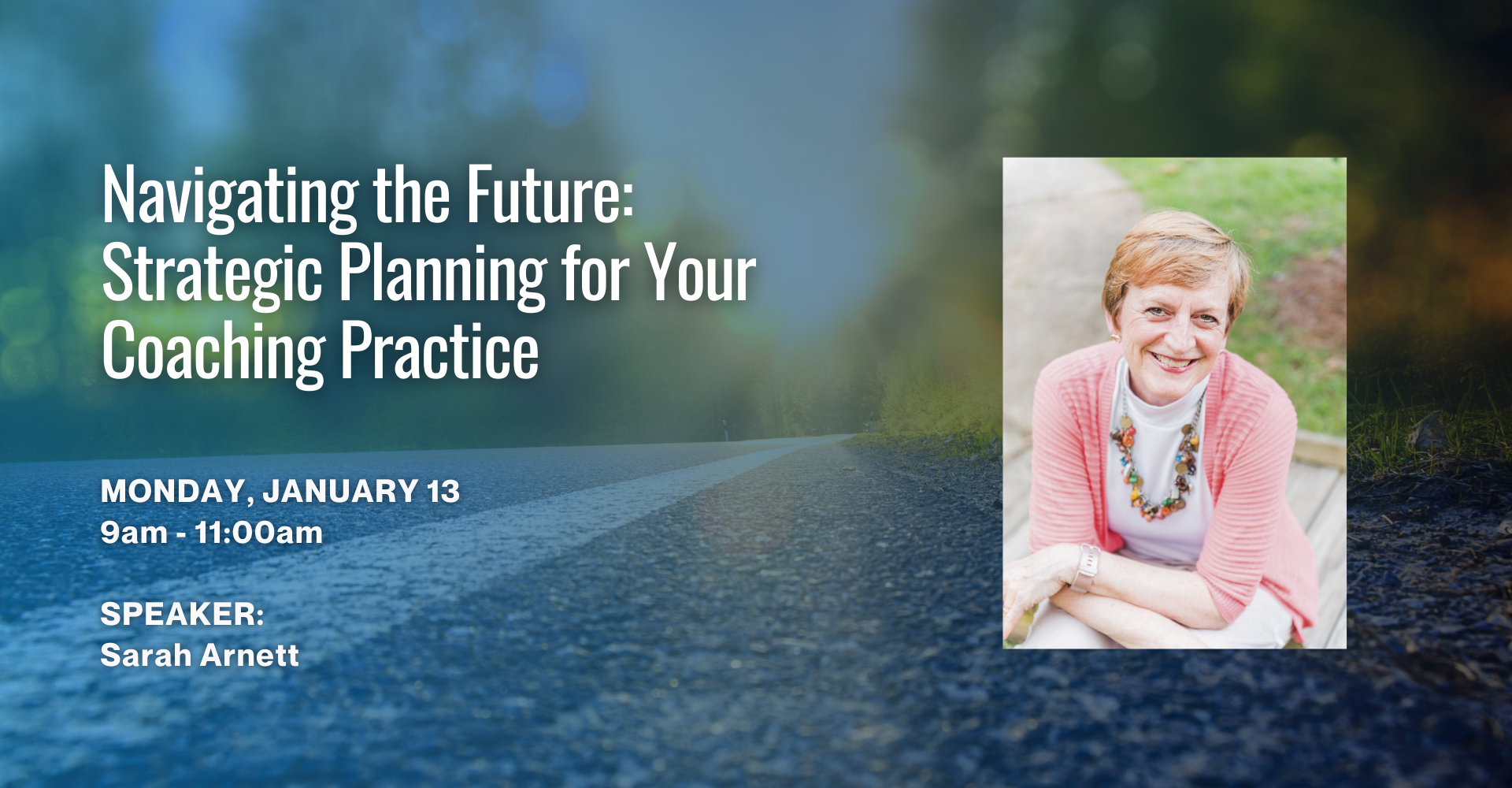
Navigating the Future: Strategic Planning for Your Coaching Practice
Sarah Arnett will demystify strategy by defining it and distinguishing it from planning and visioning.

The Gifts of Coaching: A Reflective Journey into Purpose & Fulfillment
Celebrate the essence of coaching as a gift in this interactive and reflective program designed to deepen your connection to the coaching craft and community.

Unlocking the Mystery: Exploring Beyond Current Thinking
Delve into advanced coaching competencies, including often-overlooked ICF PCC markers.



Coaching ‘Real Play’
Elevate your skills, expand your network, and gain valuable insights from your peers!
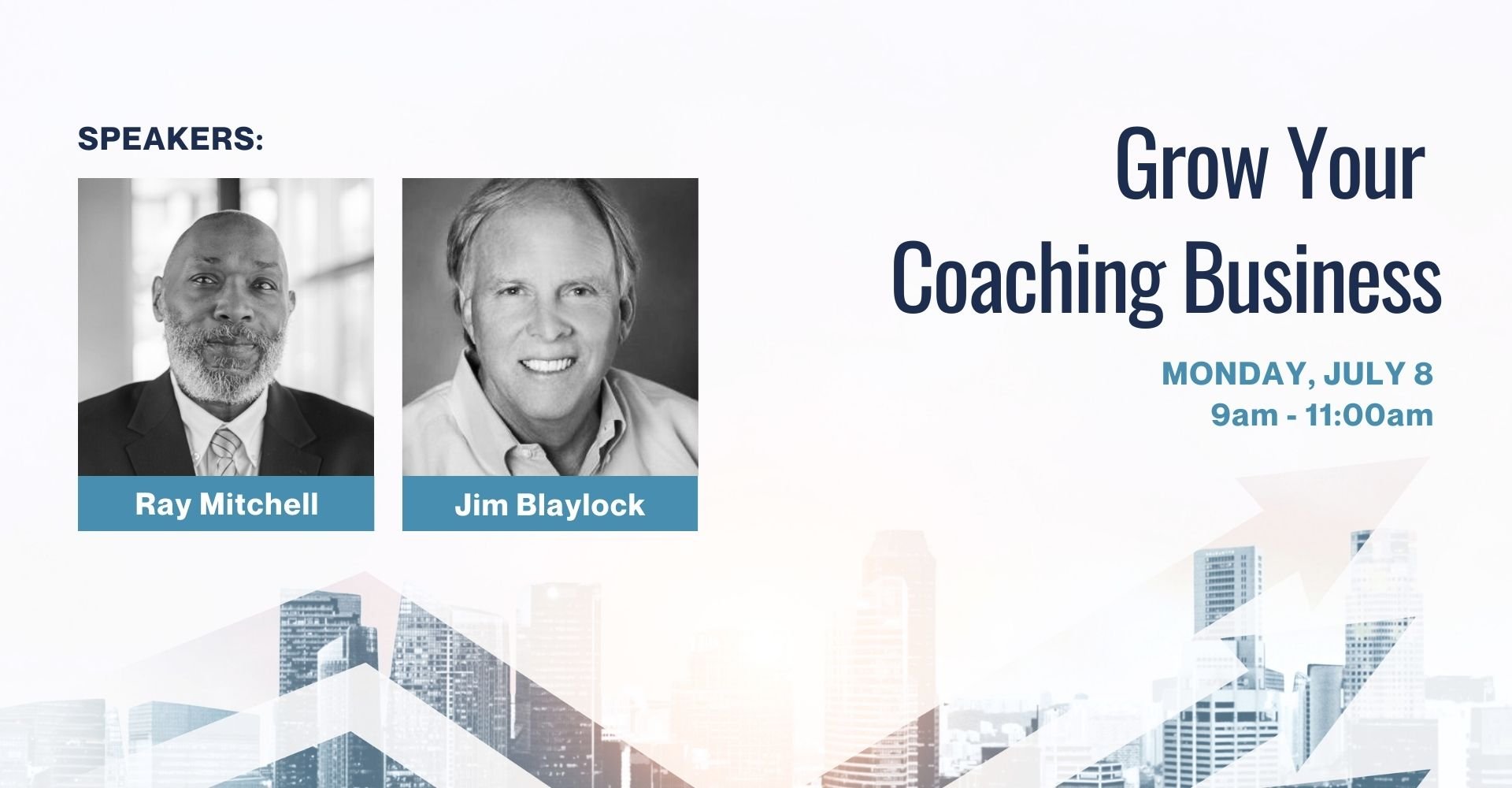
Grow Your Coaching Business
Struggling to find clients for your coaching practice? Ready to take your coaching practice to the next level? We've got you covered!

Essentialism in Coaching: The Marriage of Form and Substance
How do we intentionally grow and develop our 'essence?' Participants will explore and share the marriage of form and substance in their own practice, and score themselves on a simple balance tool.

Coaching to Navigate & Overcome Toxic Work Environments
Delve into the complexities of toxic work environments and learn strategies to help clients navigate effectively in toxic workplaces.

TCC’s Annual Member Business Meeting
Annual member meeting in which we provide Board updates to the members and elect board members for 2024.

Psychometrics in Coaching: Now and In the Future
Do coaches need psychometrics and, if so, how do they go about choosing the right assessments for their clients and their brand? I’ll map how psychometrics developed, why coaching and psychometrics have always treated each other with suspicion and how that’s changing. I’ll suggest questions practical ways of sorting snake oil from true science in the testing area. I’ll also suggest what your assessment ‘tool kit’ should look like.
After a breakout, the second half will look at the future of testing, how a number of influences - digital tech and AI in particular – are already transforming the area and whether this will benefit you and their clients.
Session goals
Evolution of psychometric instruments
Understanding when, if and which, psychometric instrument to use
Additional resource
Ian has kindly provided us with a published article about the rigor that substantiates the science behind psychometric instruments. Read the article in full.
Ian Florance
Ian Florance studied at Leeds and Reading Universities in the UK. After a time in general publishing he spent two decades at NFER-NELSON, the leading UK supplier of psychometric tests as well as training and consultancy in the clinical, educational, and business markets. Ian was publishing, international and business director for the company. He established his own business, Only Connect, in 2002. This provides marketing, consultancy, coaching and product development services to test developers and publishers. He has written interviews with psychologists for over 20 years: they appear in The Psychologist, the British Psychological Society (BPS) journal. Ian qualified as a business coach with Meyler Campbell. He is an observer on the Board of Assessment of the European Federation of Psychological Associations (EFPA) and is involved in revising its framework for test reviews. Ian joint-founded the European Test Publishers Group in1991. He is Executive Director of the group and is presently planning their 2024 conference in Bordeaux, France.
He co-edited with Professor Mary Watts two books on coaching for Taylor and Francis and Sage and has published a book on assessment in coaching for McGraw-Hill’s Coaching in Practice series. Outside this work, Ian is a poet, novelist and writes words for choral music.
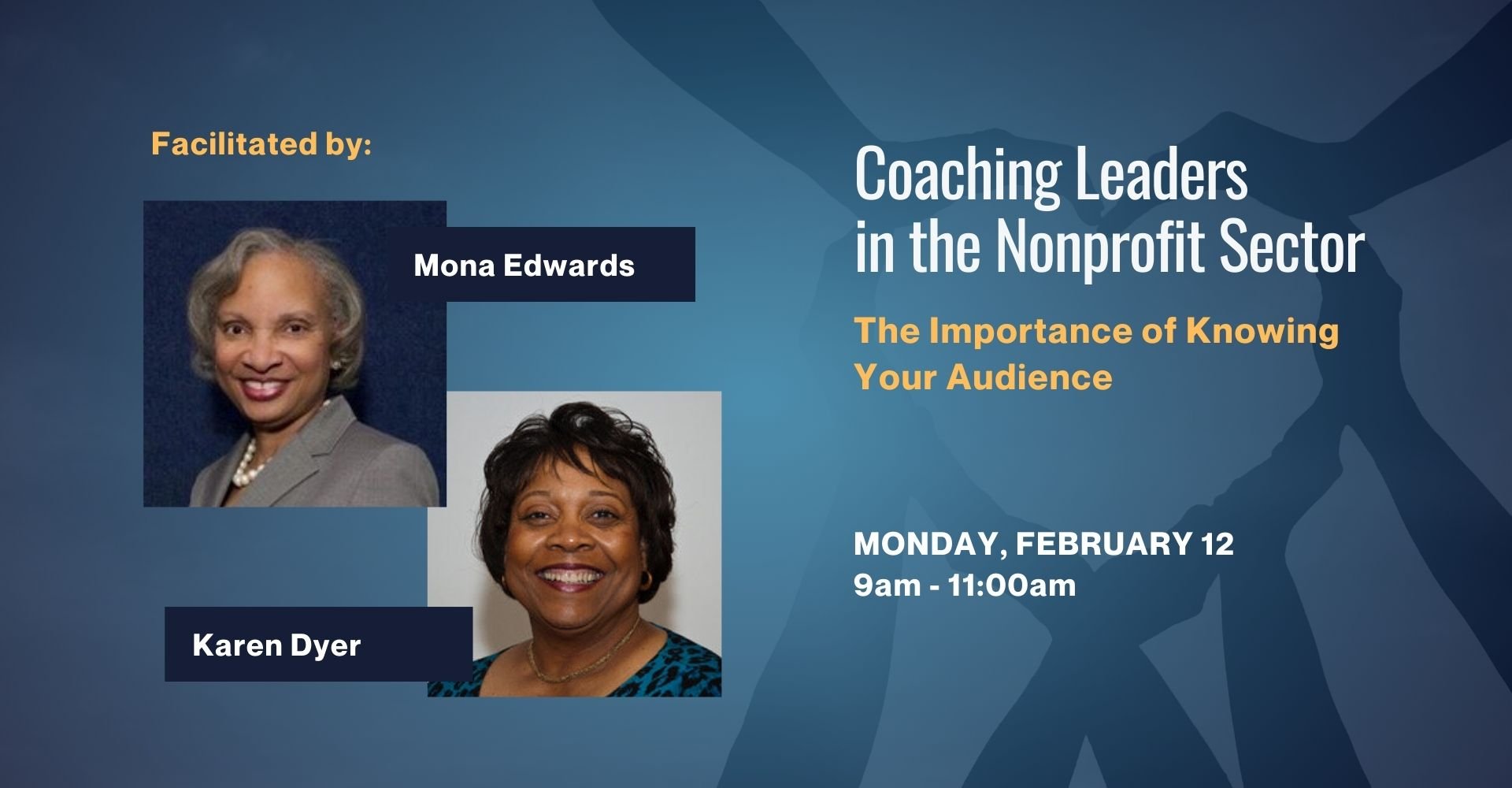
Coaching Leaders in the Nonprofit Sector
Coaching nonprofit leaders, including educators, can be quite a rewarding experience. However, the coaching experience is more than just “giving back” and walking away “feeling good” about having worked with this particular audience. There are key differences between nonprofit and for-profit leaders as well as additional DEI considerations among members of the sector. Two leaders who have had extensive experience coaching nonprofit leaders will present lessons learned. Using various case studies, participants will be exposed to questions/prompts and considerations that can be applied when coaching members of this sector.
Session goals
Explore key differences that often emerge when coaching nonprofit versus for profit leaders
Be exposed to questions/prompts that can be applied when coaching nonprofit leaders
Examine the importance of knowledge about and having sensitivity to DEI (including race, culture, gender, socio-economic status, age, ability, etc.) when coaching nonprofit leaders.
Mona Edwards
Mona G. Edwards is the founder and owner of LIFT Coaching and Consulting where she coaches executives and leaders to improve performance, achieve career goals, enhance working relationships, make behavioral changes while also connecting to their identity and context. She also provides planning and facilitation services, and consultation on organizational human resources needs. Mona serves as an Adjunct Feedback and Executive Coach for the Center for Creative Leadership (CCL) and has experience with several assessment instruments.
Mona holds a J.D. degree from Washington and Lee University School of Law and a B.A. degree from the University of Virginia.
Karen Dyer
Karen M. Dyer, a Partner in On Point Leadership, was formerly the Director of the Education and Nonprofit Sector for the Center for Creative Leadership (CCL), responsible for leading the work that insured CCL’s portfolio of programs, products, and resources were made available to social sector executives and senior leaders - enterprise wide. In addition, Karen was a facilitator for the African American Leadership Program, Women’s Leadership Program, and recently named Honorary Senior Fellow – one of CCL’s highest honors.
Karen holds a bachelor’s degree from the University of California, Berkeley, a Masters of Education degree from Holy Names University in Oakland, California, and a Doctorate from the University of the Pacific in Stockton, California.

A New Era of Personalized Coaching
The coaching world is abuzz with the potential of generative AI, but what is real and what is hype? In this presentation, we'll explore the current landscape and delve into how AI is already transforming coaching practices, from personalized goal setting to on-demand support.
We'll dive into what we’re learning from research exploring the boundaries and implications of human-AI collaboration in coaching. We'll examine open questions that challenge us to think beyond the hype, prompting critical conversations about ethics, bias, and the irreplaceable role of human connection in the coaching journey. You’ll explore your own perspective on the potential and pitfalls of a future where AI empowers coaches and clients to reach their full potential.
Session goals
To explore and identify the seven key behaviors we seek from our clients as we deliver value to them and their experience
Gain greater awareness of strengths and (current) limitations of AI
Surface and expand our implicit theories about the risks and potential of how AI could intersect with coaching
Understand key topics and new research insights related to the use of AI
Dr. Shonna Waters
Dr. Shonna Waters is an organizational psychologist and executive with over two decades of experience in human capital transformation. She is a prolific writer, having published peer-reviewed journal articles, handbook chapters,magazine articles and blogs. A recognized thought leader, she is a sought-after speaker and ICF certified coach. She received her Ph.D. from the University of Minnesota and is the author of two award-winning books.

The Gifts of Coaching: Understanding the value we deliver to our Clients
As we embrace the season of giving and receiving, and reflect upon the year's end, our session in December focuses on the intrinsic value of coaching. "The Gifts of Coaching" is not just about tangible outcomes but also about understanding and appreciating our profound impact on our clients. This session is designed to align with the spirit of the season, emphasizing reflection, gratitude, and recognition of the value we deliver in our coaching roles.
PROGRAM OVERVIEW:
Overview of Customer Experience and Value: We will delve into the seven behaviors we seek from our clients and how we can foster an environment conducive to these behaviors. Understanding what clients value most can often be best discerned by continually co-creating that goal.
Panel Discussion: This panel includes clients themselves, offering a unique perspective into the client-coach dynamic.
Breakout Sessions: Participants will engage in smaller groups to discuss practical strategies and personal experiences in delivering value. These sessions aim to foster a deeper understanding of how we can gauge the impact and effectiveness of our coaching services.
This session is a reflection of our professional journey and a celebration of the value we have created throughout the year. As we step into the new year, let us carry these insights forward, continually striving to enhance the value we provide to our clients and the broader community.
Session goals
To explore and identify the seven key behaviors we seek from our clients as we deliver value to them and their experience
Recognition of us as a provider of diverse services and opportunities
Consideration for all relevant opportunities
Recommendations and referrals to expand our reach
Preference in selecting us for future opportunities
Utilization of our expertise as a resource for information
A gradual increase in investment, whether in terms of time, trust, or additional opportunity
Mutually beneficial fiscal relationship
Martha Kesler
Martha is an Executive Coach and Organization Development Practitioner who helps others identify possibility, align to their values and ignite the passion to propel forward. She co-chairs the TCC Programming Committee, and she is on the TCC Board.
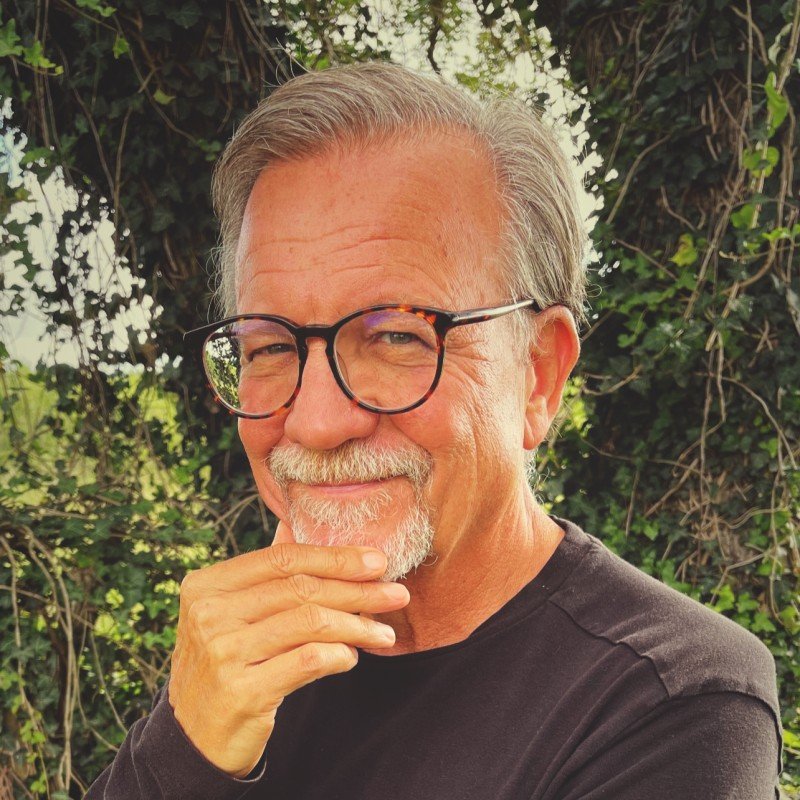
Enjoying Problems with the Simple6 Approach: The Skill That Changes Everything
Facilitator:
Dr. Fred Ray Lybrand
Email: fredraylybrand@gmail.com
URL: https://enjoyingproblems.com
LinkedIn Address: https://www.linkedin.com/in/fredraylybrand/
CCE credits
ICF members get 2.0 Resource Development Credits
PROGRAM OVERVIEW:
Entrepreneurs face a real challenge in upping their skills in problem-solving. First, anxiety itself can be in the way of creative thought, but creative thought can solve the problem creating the anxiety! This is part of the reason we mostly problem-soothe or what I would call practice ‘problem-slopping’. We throw out a lot of ideas while we fret and struggle. It’s hardly consistent. It hardly produces a consistent result.
My new book entitled Enjoying Problems: How Entrepreneurs Get To The Next Level is all about the Simple6 process I've developed over 40 years to help entrepreneurs, engineers, leaders, and coaches create lasting solutions to their most challenging problems.
This workshop we'll walk through these principles and equip coaches to take a better approach for themselves and their clients.
How this program will benefit coashes:
They will learn a better path to solving their own problems.
They will add to their own coaching toolkit; being able to offer coaching help in a fresh way for those who want it.
They will learn how to erase anxiety in themselves and others.
Dr. Fred Ray Lybrand Jr.
Dr. Fred has been married to his wife Jody for over 40 years, and together they have five children and 11 grandchildren. His diverse experiences with Solutions-Crafting includes
The University of Alabama (English Literature/ Communications/Fiction Writing)
Speech Communication Instructor (University of Alabama)
Law School (University of Alabama)
Masters in Biblical Studies (Dallas Theological Seminary)
Doctorate in Applied Theology (Phoenix Seminary)
Dr. Fred has 12 online courses for homeschoolers, has written and published ten books, and is a skilled structural consultant.
His clients have included the United States Air Force, State Farm Insurance, Valero, Chick-fil-A, Pioneer Natural Resources, Encana, Marathon Oil, Rose & Associates, ProTrader, Burlington Resources, AcuFocus, Connally Plumbing, Inc., Silver Creek Oil & Gas, Maplewood Investment Partners, Continental Oil, Infinity Concrete Construction, Westhill Paving, Talentum Engineering, PTX Therapy, and 3DPlans.com.
A couple of distinctions worth mentioning are his Organizational Consultant Certification with Robert Fritz, Inc. (mentor to Peter Senge, Sloan School of Management @ MIT) & “Best of the Best Honoree Award” (American Society of Safety Engineers) for his two-part article on “Transcendent Leadership.

Disrupting Bias to Increase Coaching Success
PROGRAM OVERVIEW:
As the dramatic shift to a highly diverse and expressive workforce continues, leaders know they must create a culture that embraces understanding and acceptance of differences as well as similarities. They know cultural and racial backgrounds and experiences of diverse employees and clients can enrich the organization, making it more innovative and competitive.
Enhancing your ability to recognize micro-affirmations and micro-aggressions enables you to work more effectively with all team members while appreciating the diversity of thought they bring to the organization. The added benefit is the skills learned can be used professionally and personally thus reducing stress and enhancing positive interactions.
This interactive, non-judgmental, and fun program provides an opportunity for you to discover your own level of knowledge and understanding of people different from you, and then apply the principles of inclusion to build relationships. By exploring the biases that inform some behaviors and impede productivity, you will be better equipped to turn barriers into bridges and focus on inclusive actions when you return to their organization.
As a result of attending this session, you will be able to:
Improve your awareness of the impact of biases
Limit the influence of hidden biases on decisions
You will be able to apply the 4-Part Compass to expand your cultural competence
Lenora Billings-Harris, CSP (Certified Speaking Professional) is a CPAE (Council of Peers Award of Excellence) Hall of Fame speaker and an internationally recognized authority in the areas of inclusion, diversity, and bias. She has been included as one of the 100 Global Thought Leaders on Diversity and Inclusion by the Society of Human Resource Management and was named by Diversity Woman Magazine as one of the twenty top influential diversity leaders in the US. Her award-winning diversity leadership research is recognized in academic journals internationally. Additionally, she serves on the Advisory Council of the Nido Qubein School of Communication, High Point University, as well as on the adjunct business faculty of two other universities.

Coaching Research: How do we measure our impact?
PLEASE NOTE THE SPECIAL DAY, TIME AND LOCATION OF THIS EVENT.
This location is near, but not at the hospital. There will be a short reception hosted by Cone Health immediately following the program. If you prefer, you may attend via Zoom.
Facilitators
Michelle Bostian, Senior Organizational Effectiveness Consultant at Cone Health
Sherry Abernathy, Center for Empowered Excellence
CCE credits
ICF members get 2.0 Resource Development Credits
PROGRAM OVERVIEW:
Cone Health’s commitment to wellness expands from employee engagement to patient outcomes and community outreach. One of the hallmarks of Cone’s commitment to be “right here with you” can be seen in the Professional Coaching program. This offering was initiated over 13 years ago and has now certified over 100 leaders serving countless team members.
The impact on employee engagement and retention is easily visible. The commitment of leadership in supporting the robust training and the waiting list of leaders in line for each upcoming coach cohort speaks to the culture of development.
We are excited to finally get a peek into patient outcomes and as we have been able to capture data with greater intentionality. We have early data to suggest that positive patient outcomes are linked with employee participation in professional coaching. Come learn about our journey and promising trends in the data!contact
Michelle Bostian, Senior Organizational Effectiveness Consultant at Cone Health
Michelle Bostian is an executive coach and consultant known for her warm presence and effective leadership. Her career has included deep experience in design and delivery of custom leadership programs, change management, team alignment and vision planning.
Michelle is a Board Certified Coach and International Coach Federation (ICF) Professional Certified Coach, Certified Team Coach and a Certified Change Management Professional. She is a Center for Creative Leadership trained coach, and serves at Cone Health as a Senior Organizational Effectiveness Consultant and coach trainer. Michelle is also a National School Reform certified coach and is trained in Restorative Practices. She is a founding member of a national non-profit, Heart of Character and served as past president of the Board for Mental Health Greensboro in North Carolina.
Assessments: Various 360s, Myers-Briggs Type Indicator®, WorkPlace Big 5 Profile™, FIRO-B and DiSC
Sherry F. Abernathy, PhD, ACC, CPCC and CEO, the Center for Empowered Excellence
Sherry is an international coaching federation (ICF) certified professional coach, and the CEO for the Center for Empowered Excellence, LLC. Dr. Sherry retired from the corporate and university world after over 30 years. Her past experiences include working as an IT Manager, Assistant Dean for Finance and Budget, and Assistant Dean for Student Success. She has a doctorate in Organization and Management, a MBA in Leadership Studies, and a Bachelor’s degree in Accounting and Information Systems. Dr. Sherry is an author of Nursing Entrepreneurship in the 21st Century: Nurses that Start Businesses, and has been a speaker at numerous conferences




Polygon Puzzle: Team Development
SPEAKER: Donna Riechmann and Geoff Grenert of You Can Lead, LLC
For information about their Polygon Puzzle, contact Donna or Geoff via email
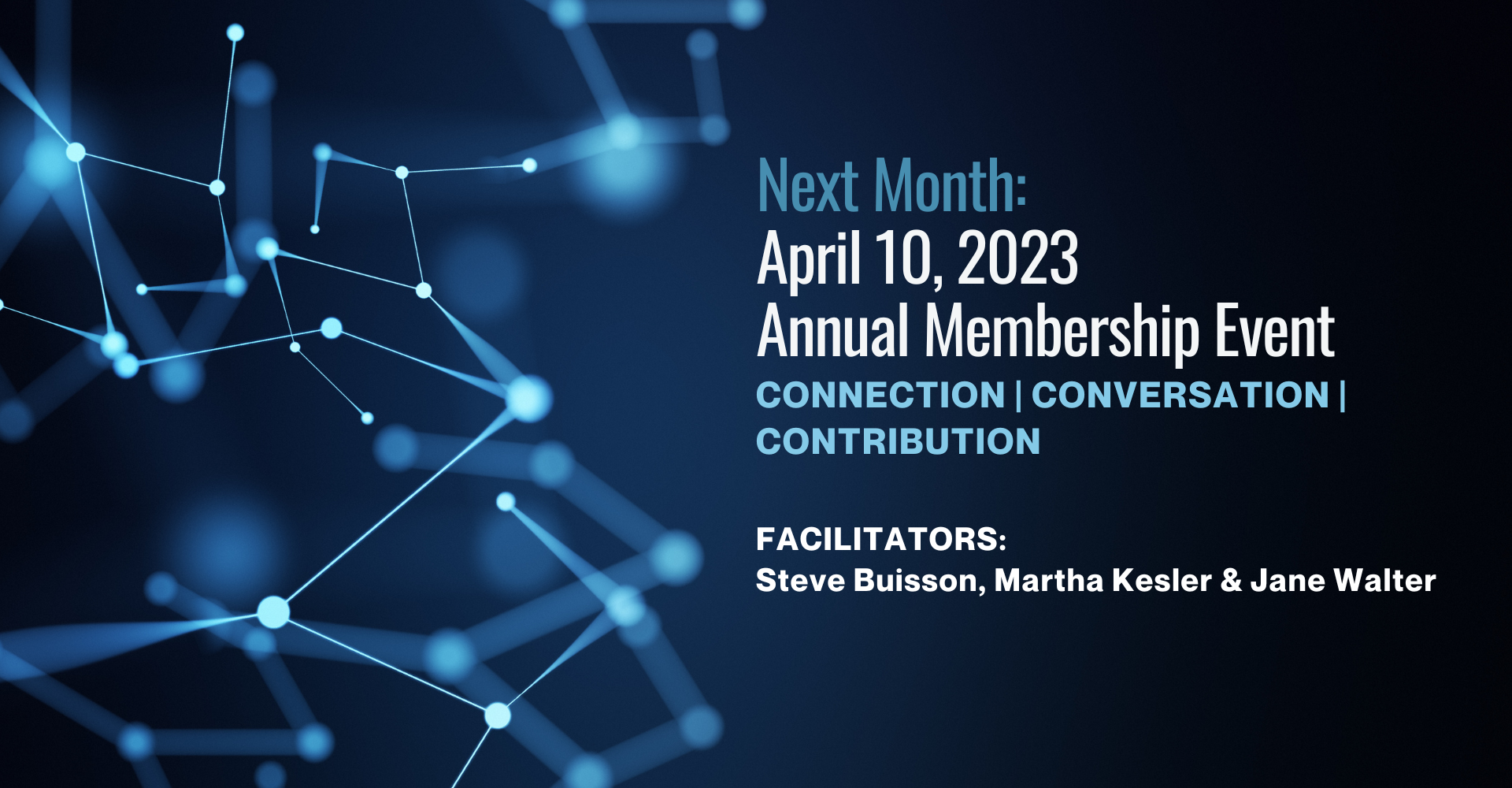
Annual Membership Event: Connection | Conversation | Contribution
SPEAKER: steve buisson, martha kesler, jane walter


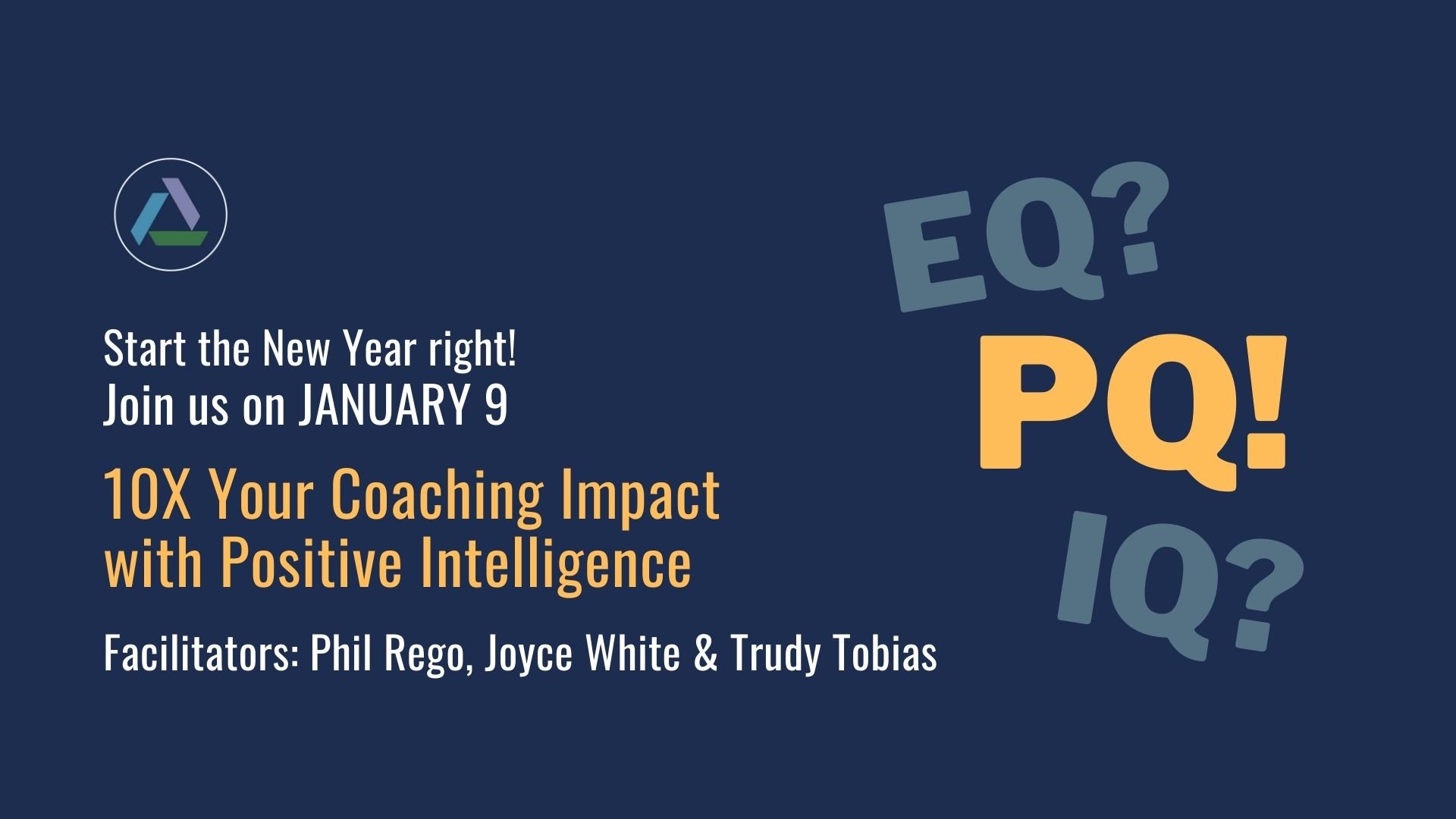

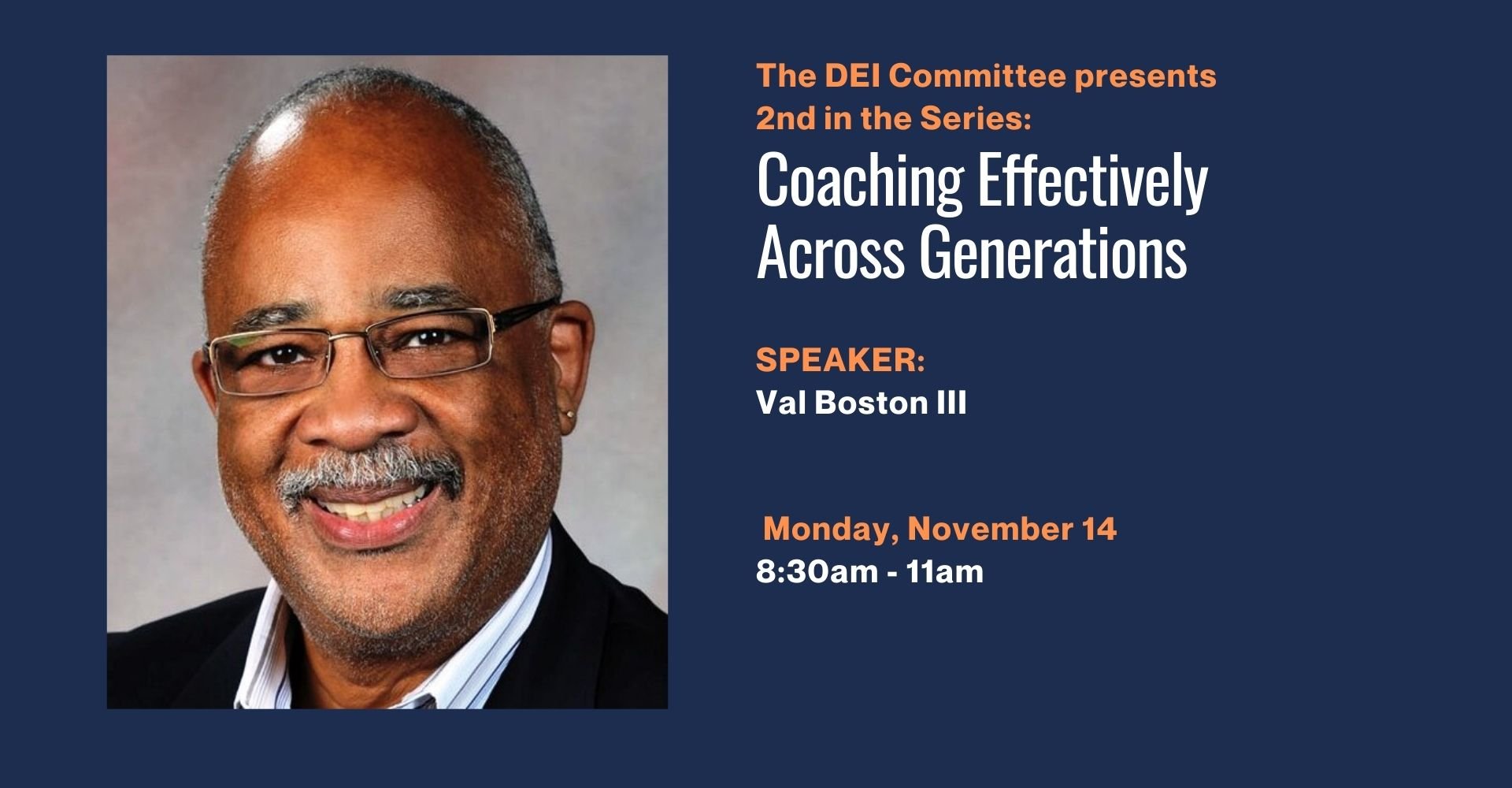
Part II: Coaching Effectively Across Generations
Led by Val Boston III
Email: val3@bostonandassociates.com
URL: www.bostonandassociates.com
LinkedIn Address: www.linkedin.com/in/vboston3
Generational Differences are a significant subset of Diversity, Equity, Inclusion and Belonging. Understanding generational differences make us more effective as coaches.
Generational Differences is a significant subset of Diversity, Equity, Inclusion and Belonging. For the first time in our history, there are four and in some places five generations active in the workplace. Each has characteristics that make them unique, based on common interests, experiences, and events. These characteristics cut across race, gender, and economic lines, and appear to be consistent across industrialized countries worldwide.
The ability to communicate across multiple generations is critical and occurs through applying knowledge of the generations and an understanding of what it takes to be effective. This is particularly important when interacting with our coaching clients and fellow associates, as each of us is from a different generation, with different styles, motivations, and values.
Key Benefits for Coaches:
Understanding generational differences make us more effective as coaches. Generations:
Share an age location in history – They encounter key historical events and social trends while occupying the same phase of life.
Share common beliefs and behaviors – Including basic attitudes about risk taking, culture and values, civic engagement, and family life.
Have a sense of common perceived membership in that generation – Most members of various generations identify themselves as a unique group with a different outlook from those outside their generation.





